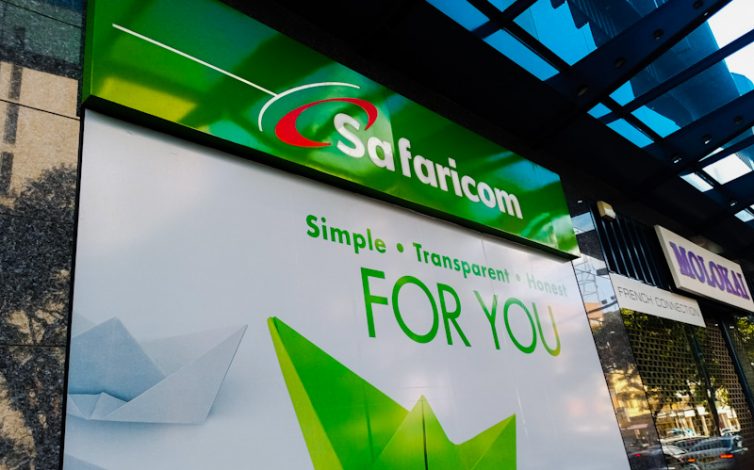News
Banks, Safaricom Defy Court’s Ruling On Cash Transfer Charges

Most lenders and Safaricom have continued to levy bank to M-Pesa charges in defiance of a court order.
The High Court slammed brakes on reintroduction of bank to M-Pesa transactions.
But a survey I’m several banks including Kenya Commercial Bank, Equity Bank , Co-operative Bank and Safaricom are still charging bank to M-pesa transactions against the court order.
Customers from various Banks confirmed that their banks are charging for the said transactions.
Central Bank of Kenya Governor has also not issued any statement or directives informing them not to introduce the charges as ordered by Justice Mugure Thande.
Justice Thande issued a conservatory orders directing the telcos and the regulator to suspend the reintroduction of the charges for mobile money wallet and bank transactions, pending hearing and determination of the case.
Moses Wafula challenged the decision to reintroduce M-pesa charges a move that was condemned by the members of public due to harsh financial situation being experienced in the country.
Petitioner through his lawyer wrote to Central Bank Governor Patrick Njoroge on 10th of January,2023 questioning why he has failed to direct the Banks to suspend the transactions as directed by the high court .
“CBK as a regulator of Banks and M-pesa platform, is hereby required to direct the Banks to suspend the reinstated charges until the court issues any further orders in the matter,” Wafula letter stated.
Wafula urged the court to order CBK to produce before court within fourteen days, the criteria for authorisation of Mobile to Bank payment services, the list of documents submitted prior to clearance, and other documents specifically illustrating how the best interests of the public were taken care of prior to authorization.
“This court do order the intended Central Bank of Kenya to produce before court within fourteen (14) days the NO OBJECTION LETTERS issued to 1st Respondent and Banks in view of the MPESA PAYBILL contracts between the 1st Respondent and the respective Banks,” urged the court.
He argue that if the Banks continue riding on this Mpesa Paybill infrastructure, making money from members of the public, then in the event that this honorable court finds this Mpesa paybill platform to have been operating in contravention of the Law, the impact will be higher; more funds from the members of the public would have been lost and it may be a lot more difficult to ask the banks to refund such funds collected from the members of the public.
He said the case before court illustrates that the engagement between Safaricom and its Mpesa Paybill clients is a bipartite business engagement between the Safaricom as the Mpesa Paybill service provider and their Mpesa paybill primary clients being the service recipients. Banks and other financial institutions using the Paybill system are classified as Safaricom’s Mpesa Paybill primary clients.
He adds that the Banks being one of Safaricom Mpesa Paybill primary clients also elect to pass the Safaricom Mpesa paybill charges to the members of the public (the Safaricom clients’ customers).
“It is the applicant’s contention that M-pesa Paybill services being an outsourced service to the 1st Respondent; the 1st Respondent has no authority to charge members of the public for a service offered to its contracting service recipients including banks,” he adds.
He adds that Safaricom is acting as an agent in their role of collecting money from the consumers (the public) on behalf of the Banks and other parties mentioned in the petition and relaying the same to their bank accounts and mobile wallets. I further believe that M-pesa Paybill services being an outsourced service to Safaricom and the company has no authority to charge members of the public for a service offered to its contracting service recipients including banks.
“If the Banks continue riding on this Mpesa Paybill infrastructure, making money from members of the public, then in the event that this honourable court finds this Mpesa paybill platform in contravention of the constitution and various statutory provisions, the impact will be higher; more funds from the members of the public would have been lost and it may be a lot more difficult to ask the banks to refund such funds collected from the members of the public,” he adds.
Kenya Insights allows guest blogging, if you want to be published on Kenya’s most authoritative and accurate blog, have an expose, news TIPS, story angles, human interest stories, drop us an email on [email protected] or via Telegram
-

 Grapevine2 weeks ago
Grapevine2 weeks agoRussian Man’s Secret Sex Recordings Ignite Fury as Questions Mount Over Consent and Easy Pick-Ups in Nairobi
-

 News1 week ago
News1 week agoTHE FIRM IN THE DOCK: How Kaplan and Stratton Became the Most Scrutinised Law Firm in Kenya
-

 Investigations1 week ago
Investigations1 week agoMulti-Million Dollar Fraud: Three Kenyans Face US Extradition in Massive Cybercrime Conspiracy
-

 Economy1 week ago
Economy1 week agoIran Demands Arrest, Prosecution Of Kenya’s Cup of Joe Director Director Over Sh2.6 Billion Tea Fraud
-

 Business1 week ago
Business1 week agoA Farm in Kenya’s Rift Valley Ignites a National Reckoning With Israeli Investment
-

 Africa2 weeks ago
Africa2 weeks agoFBI Investigates Congresswoman Ilhan Omar’s Husband’s Sh3.8 Billion Businesses in Kenya, Somalia and Dubai
-

 Grapevine4 days ago
Grapevine4 days agoA UN Director Based in Nairobi Was Deep in an Intimate Friendship With Epstein — He Even Sent Her a Sex Toy
-

 Politics2 weeks ago
Politics2 weeks agoSifuna, Babu Owino Are Uhuru’s Project, Orengo Is Opportunist, Inconsequential in Kenyan Politics, Miguna Says
















